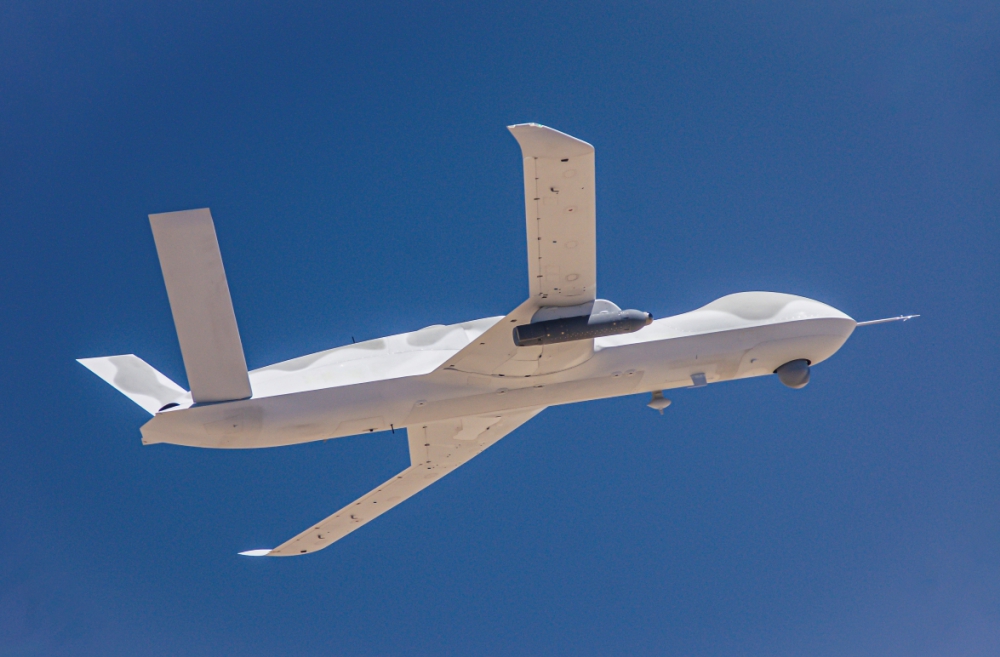For the first time ever, over the high desert of southern California on July 2, 2021, General Atomics Aeronautical Systems, Inc. (GA-ASI) used an Avenger Unmanned Aircraft System equipped with a Lockheed Martin Legion Pod to autonomously track and follow targets of interest.
This industry-funded demonstration brings military aviators one step closer to gaining autonomous systems that support manned-unmanned teaming (MUM-T) in joint all-domain operations.
“GA-ASI is committed to developing persistent and affordable solutions to meet the challenges of air domain awareness and defensive counter air against near-peer threats,” said GA-ASI Vice President of Special Programs Chris Pehrson. “The success of this Avenger/Legion Pod demonstration represents an important step toward more sophisticated autonomous missions for unmanned aircraft and MUM-T in a complex battlespace.”
During the flight, Legion Pod’s infrared search and track system, IRST21®, detected multiple fast-moving aircraft operating in the area and fed target tracking information to the Avenger’s autonomy engine. The autonomy engine prioritized the targets informing Avenger maneuvers for target engagement.
“This flight demonstrates a critical sensor capability that enables unmanned combat air vehicles like the Avenger to operate autonomously in Joint All-Domain Operations,” said Dave Belvin, vice president of Sensors and Global Sustainment at Lockheed Martin. “We designed Legion Pod to passively detect and track targets for tactical fighter pilots in radar-denied environments. This capability provides the data necessary to enable unmanned vehicles to track and engage hostile airborne targets without human intervention.”
This flight builds on GA-ASI’s autonomy flight test series that started in December 2020 to demonstrate next generation air-to-air Unmanned Aerial Vehicle functionality. Integrating Legion Pod software into the Avenger Mission Management System (MMS) took less than three months and was enabled through the Open Mission Systems (OMS) message standards. This OMS demonstration proves that existing operational systems can be rapidly integrated across platforms with minimal cost.
Source: Press Release

